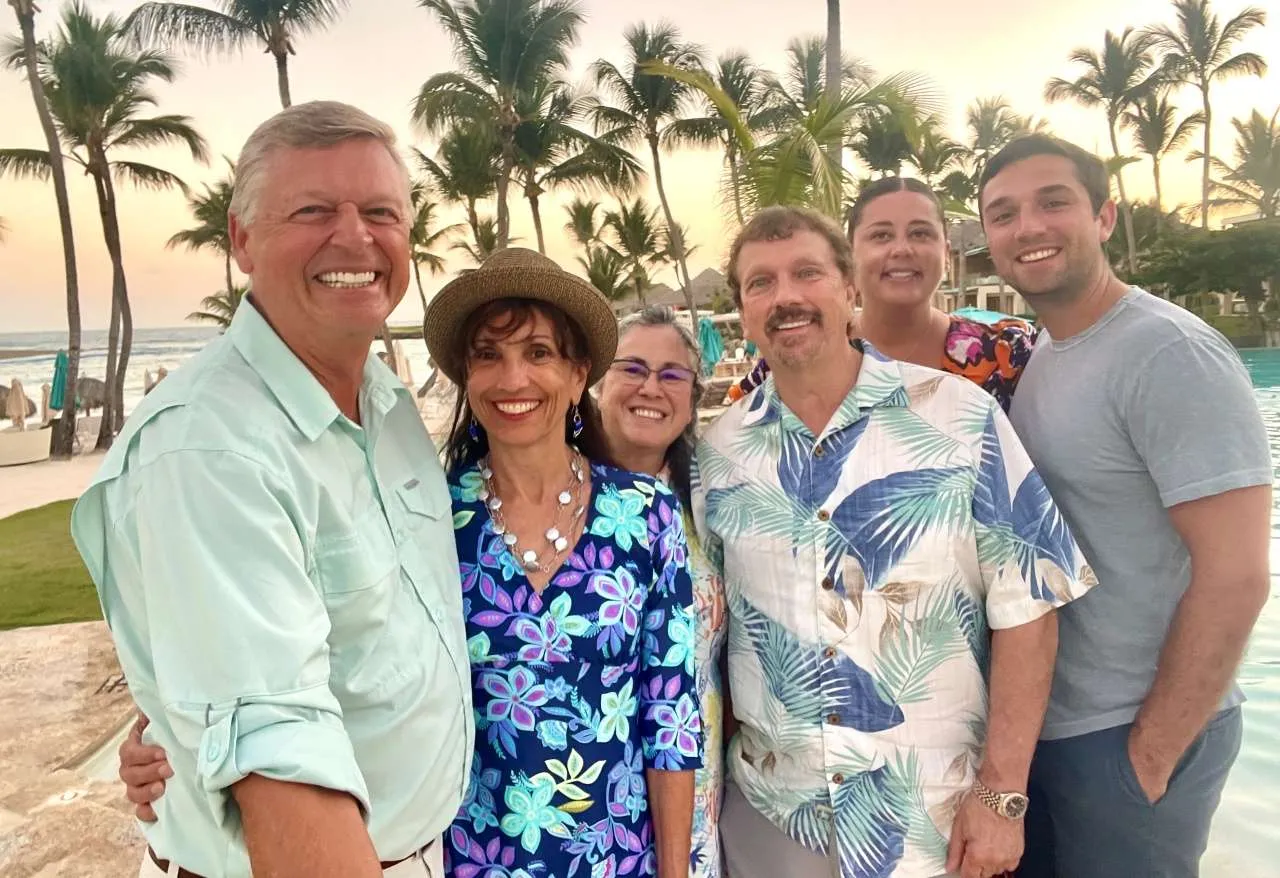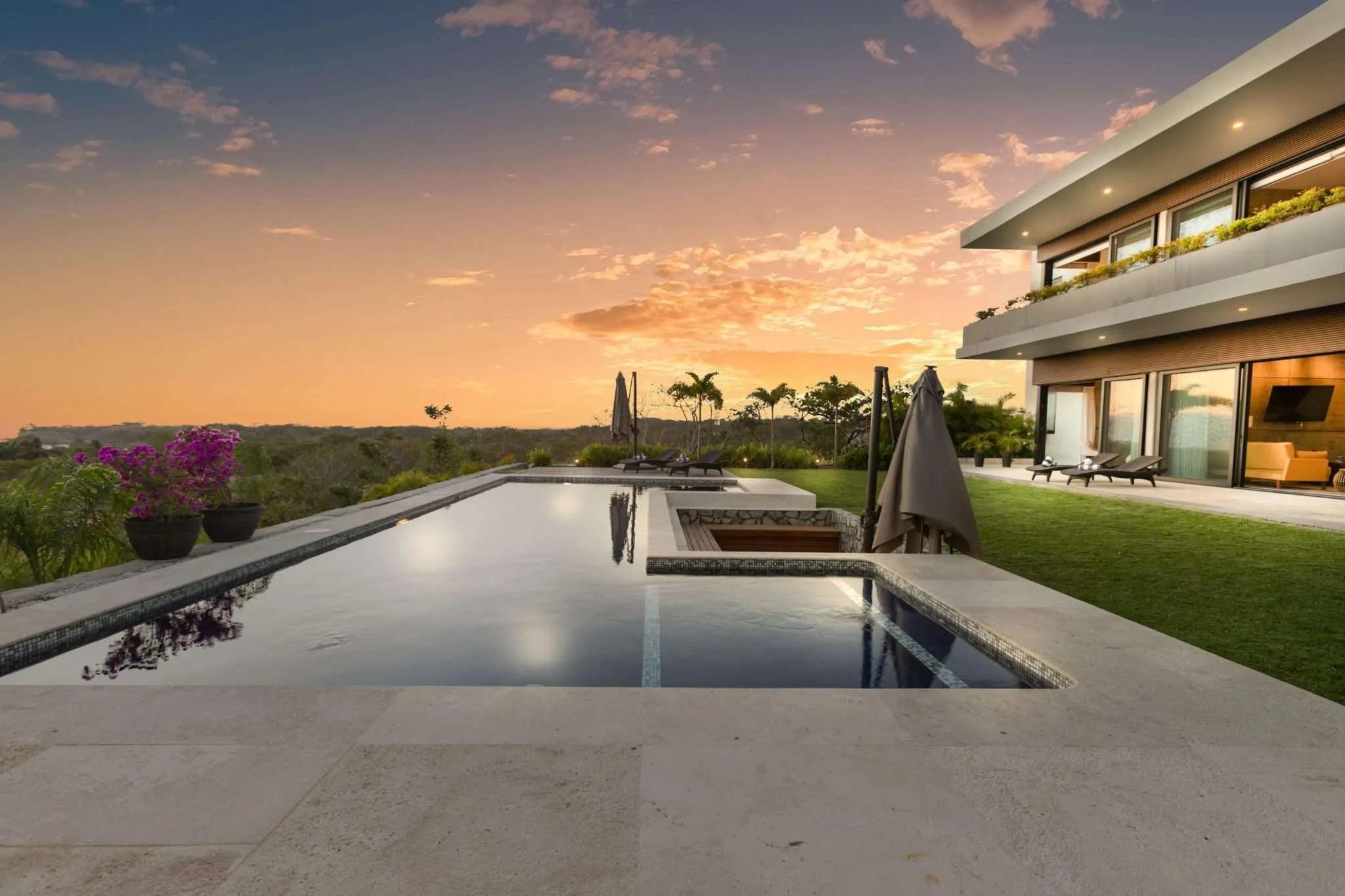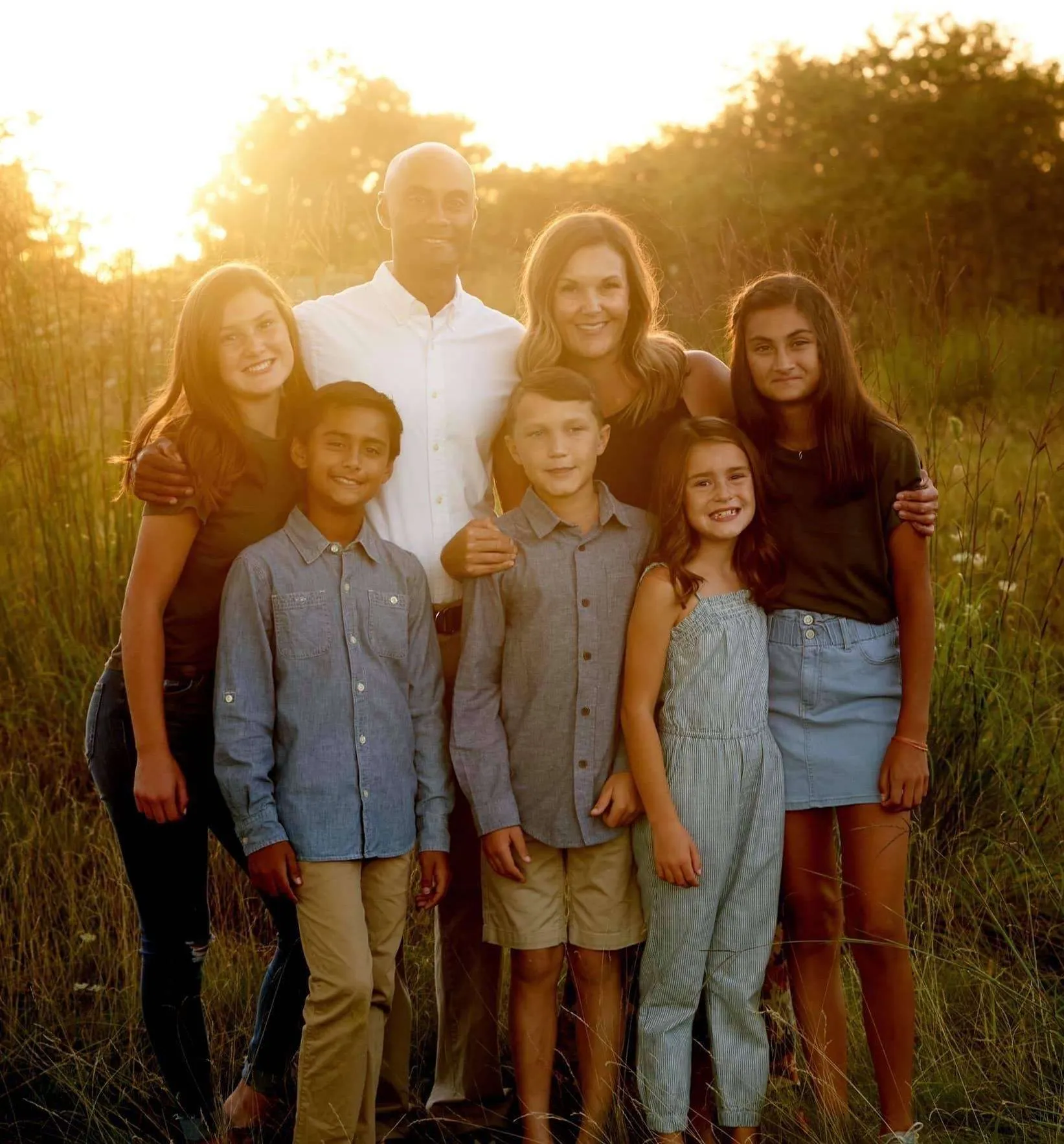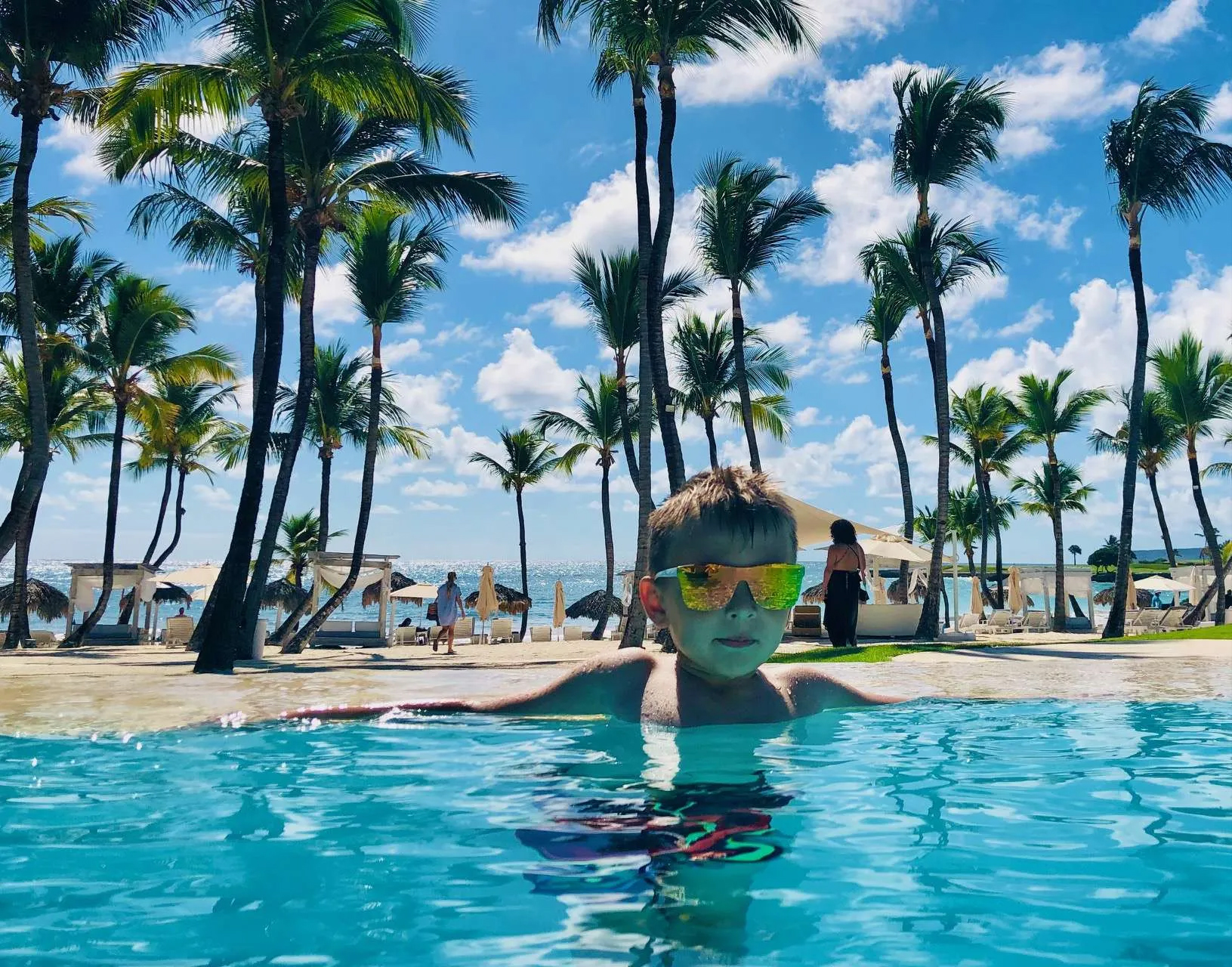We welcome Equity Villa Fund and Equity Platinum Fund investor Kevin to this edition of our Investor Spotlight series.
MEET KEVIN, AN EQUITY VILLA FUND AND AN EQUITY PLATINUM FUND INVESTOR
We sat down with Kevin on a Tuesday night at the Penn Club in Manhattan before an Equity Residences investor reception. Despite his busy schedule, he arrived a few minutes early for the interview.
In his sharp black suit, Kevin looked right at home in the rich mahogany and red velvet interior of the Ivy League club.
His calm and measured demeanor instantly conveys authority. Kevin works in the financial services industry and is a successful real estate investor in his own right. He owns two vacation homes: a condo in Santa Monica, California, and a cattle ranch in New Mexico. In addition to these properties, he has invested in hotels and multi-family housing developments in which he has “done really well.” Kevin also has a house in upstate New York where he likes to escape with his family on the weekends.
He summarized real estate investments by saying: “…the thing about real estate: if you buy it and hold on, some of the gains you get are inflation and some are real because they are not making any more of it.”
Kevin has been an Equity Residences investor for four years. He invested in the Equity Villa Fund first and then the Equity Platinum Fund. He takes vacations in fund homes and uses an affiliate, ThirdHome, on occasion.
Kevin likes the fact that the Equity Residences funds hold homes for 10 years. He explains: “I am in a private equity business, so half of my investments are illiquid.”
When Equity Residences came out with the Equity Platinum Fund in 2016, Kevin didn’t invest right away. He explained: “We don’t need a $5 Million house. We are happy with a $1 Million house for a week vacation. We live in West Village and not on Park Avenue.”
For any New Yorker, the last statement is a telling marker of character. West Village, a young, hip downtown neighborhood full of NYU students and gay bars stands in sharp contrast with posh Park Avenue full of multi-million dollar co-ops and exclusive retail shops. One exudes youthful vibrancy while the other projects old money and power.
Read Kevin’s interview below to find out how he travels, invests, and why he changed his mind about investing in the Equity Platinum Fund.
Q: Please describe the Equity Residence funds
A: The funds are an opportunity to take advantage of a pool of remarkably diverse vacation properties without the hassle of owning them. You get the financial benefits of ownership with no upkeep. You have access to mountains, beaches, Siena, and urban culture settings.
You never have to worry about the hassle of ownership and never have to maintain or take care of the properties. You may opt to have groceries delivered to the home ahead of your arrival. These are single-family houses, for the most part, so you are not staying in a hotel.
If you were to buy a home like this, you can’t let it sit there while you use it a couple of weeks a year, so the homes are also rented. Unlike the other formats I have seen, this is the only one I am aware of where you get most of the economic benefits.
The homes, bought without leverage, present no danger of foreclosure. It is hard to imagine having to give one of these homes up. As long as the holding period is long enough the value of the individual property is generally going up. The investor enjoys the financial benefits of ownership without the hassles.
It’s surprising other people have not copied this model.
Q: Describe an ideal investor for an Equity Residences’ Fund
A: People have to make a fair amount of money for it to make sense. And they have to like going to places and want to have different experiences. To my knowledge, it’s the only one of its kind.
SHOWING THE GRANDKIDS THE WORLD
Business travel takes Kevin around the world and compels him to stay at hotels. So when he has time to unplug and vacation with family, he prefers to spend time in single-family residences.
“What I found about vacation homes is that I like variety. I like to go to places, but I don’t like hotels that much, particularly when traveling with our grandkids.”
Kevin enjoys showing the grandkids the world and likes to discover the old and new destinations through their eyes.
A NO-HASSLE VACATION HOME OWNERSHIP EXPERIENCE
“The problem with owning a lot of vacation homes is they are a hassle,” Kevin said.
Kevin cites his Santa Monica, California condo as an example of the difficulties of ownership. One time the unit above his caught fire. Even though his place did not burn, it did suffer water damage. He recalled how challenging it was to deal with the issue from across the country. Firefighters had to break down his front door to gain entry and to make sure were no flames a floor below.
Kevin also owns a working ranch in a remote part of New Mexico. He has professional ranch hands on the property year-round but he still worries about severe weather causing damage. There is also the threat of snowfall so heavy that the cattle on the ranch can’t move around. Heavy snow may even prevent the cattle from eating.
He says: “Every year there is something going on. The snow gets so deep so the cattle can’t eat, and you have to worry about cattle dying.”
The Equity Residences funds end the hassle of owning and keeping up a property that isn’t used frequently by the owner. Kevin likes that he can come and go as he pleases within the Equity Residences portfolios.
Although it is convenient to have a place ready for you with all your personal items, like the condo in Santa Monica, dealing with unexpected property ownership events take time and effort to solve.
As an example, Kevin pointed out that in 2017 some of the Equity Residences homes in Florida were damaged by hurricanes. He felt relief that he didn’t have to deal with the problem on his own. An advantage of being a fund investor is that maintaining homes that you do not use often is someone else’s responsibility.
“When the storms came in Florida (Hurricane Irma, 2017) it was not my problem at all to fix it. Still, I believe we are making money on those things as owners.”
EQUITY RESIDENCES MARRIES REAL ESTATE INVESTMENTS WITH DESTINATION CLUB EXPERIENCES
Kevin’s interest in vacation residences as an alternative to hotel stays goes back to the ‘90s. There were three or four options to choose from back then. He says the early, high-end, non-equity destination clubs charged as much as $250,000 to gain membership. Plus members had to pay dues and fees before using the properties. Kevin said the appeal of these clubs was: “It removed the hassle of owning a place because you went there, paid your money, and went home.”
With these destination clubs, members did not own a share of the property. Plus, the clubs bought properties with leverage or, in some cases, leased them.
He explained that if the property increased in value the “promoters made money.” If the property went down in value, the clubs would go bankrupt and the people who joined the clubs lost the right to use the properties and their $250,000 fee to join.
HOW KEVIN DISCOVERED EQUITY RESIDENCES
Kevin was first introduced to Equity Residences in 2011. He met Greg Salley while attending a trade event. Kevin loved the concept of having the financial benefits of property ownership while not having to maintain the residences himself. The meeting sparked more inquiry and conversation about the details of the fund.
Kevin remembers, “They married the concept of the no-hassle vacation home I was looking for with an ownership interest. It really resonated with me.” Kevin thought the Equity Villa Fund would allow him to travel with his family. After more due diligence he made a decision to become an investor. He particularly liked that the Equity Villa Fund had a planned liquidation in ten years.
Other options available in the market at that time did not offer the built-in liquidation event. Kevin calls timeshares “the worst trap in the world” because there is no liquidation event and the high annual fees lock owners in. He also ruled out destination clubs and vacation clubs.
Kevin shared: “I am in a lot of private deals, mostly in private equity.” What he doesn’t like about some of his investments is that fund managers keep the portfolio beyond the advertised hold timeline, “especially if the properties are not going up in value.”
He liked that the Equity Villa Fund took advantage of the foreclosures and the bank deals that were a result of the Great Recession. He liked the 10-year liquidation timeline. So, he invested a minimum amount because the Equity Villa Fund was a new concept at the time and the managers were untested in their execution.
Kevin added to his investment after his trip to Panama through Equity Residence affiliate ThirdHome and after seeing that the Equity Villa Fund homes started going up in value.
In 2017, Kevin decided to invest in the Equity Platinum Fund not because he wanted to stay at “a $5 million house,” but because the GP decided to sell some of the Equity Villa Fund homes early due to market timing.
This move pleasantly surprised him: “I thought it was such a remarkable action on their part. If this is how they are going to act from the investment standpoint, it’s a good thing.”
The decision to sell some of the Equity Villa Fund homes early meant Kevin received some of his investment back, plus he was receiving dividends that offset the fund management fee. [Note: Equity Villa Fund dividends are guaranteed if investors return vacation time in the fund homes for usage.]
“So all the things that are annoying about these investments are not annoying here. They actually get a K-1 out on time, which is unusual for a complicated partnership like this.”
A CONCIERGE TO HELP WITH THE PLANNING SIDE
Kevin appreciates that Equity Residences takes care of trip planning for its busy investors. He mentioned that he was still working full-time and does not have as much time to organize vacation travel. Eight business trips to London every year complicate choosing vacation dates, so long lead-time vacation planning is out of the question.
Kevin calls the Equity Residences concierge directly, and his requests are processed outside of the normal reservation procedures. [Note: we always strive to accommodate investor special needs. Investors can call our concierge and book a vacation without waiting for a reservation round to start.]
A WORLD TRAVELER
Kevin’s vacation destinations include the Siena penthouse in Italy. He is going to Park City this summer; he traveled to the Captiva house, and other Equity Villa Fund homes. He revealed that he and his wife were reluctant to reserve the Dominican Republic house because it has a butler and a maid. He smiled and said: “That’s the kind of people we are.”
Kevin reserved the Dominican Republic house anyway but had to cancel the trip due to personal reasons.
USING THIRDHOME IS AN AFFILIATE OF EQUITY RESIDENCES
Our investors like to browse the ThirdHome website because there are hundreds of vacation homes available at any time. Kevin feels this is an added benefit to investing in the Equity Residences funds. ThirdHome is excellent for traveling on short notice. Kevin says ThirdHome is ideal for larger families who want to travel together.
A family can spread out in the same city because there are “generally a few options available in the same city at the same time.” For instance, a group traveling together to Los Angeles could stay in Hollywood and Malibu on the same trip.
Kevin also stayed in Sausalito and Mendocino counties in California through ThirdHome.
Kevin says Equity Residences is the best format for owning more than one vacation home. “I am a believer in real estate, but as I am getting older I want to get rid of the hassle. Life is too short for hiring a property manager, and negotiating the rent.”
ON USING CREDITS TO BOOK EQUITY RESIDENCES HOMES
When the Equity Villa Fund was launched, vacations were treated equally for investors. Low season weeks were treated the same as high season weeks and larger, more expensive properties were valued the same as smaller, less expensive homes. This created an imbalance in demand and a diminishment of rental revenues due intense high-season use by investors.
To create a more equitable and sustainable business model, the Villa Fund implemented a credit-based system. Investors are allocated credits each year that are used to reserve fund homes. The number credits needed to reserve a home are dictated by the season and size and value of the residence.
Kevin likes the credit-based system now used by the Equity Residences funds. “When I started, they did not have the credit system. The points were the same for Park City for Thanksgiving or Christmas as they were for July. That didn’t make sense.”
The credit system is advantageous to Kevin because he does not travel for vacations during the peak times of the year. “To some extent, we like all the properties they have. We like the ski properties in August. So, we are counter-cyclical. We don’t want to go when most people want to go.”
On a side note, a business associate of Kevin’s from San Francisco was considering investing in the Equity Platinum Fund. Kevin made himself available to answer questions and was influential in having a new, fellow investor join the fund.
NEW PROPERTIES MEAN NEW ADVENTURES
Asked where he would like to see new Platinum Fund properties, Kevin replied he prefers more homes in the Caribbean, especially places like St John’s. Also on Kevin’s list is a rustic country experience in Tuscany. Other desired destinations include Spain, Portugal, and Quebec. He said he spends a long weekend in Montreal every year and enjoys it very much. He said it was like going to France without the long travel time and expense.
THANK YOU
We thank Kevin for taking time from his busy schedule to speak with us. We are gratified to hear about his experiences at the fund properties and his satisfaction with his investment decisions. We wish him and his family the very best and look forward to providing more remarkable vacations and destinations in the future.



